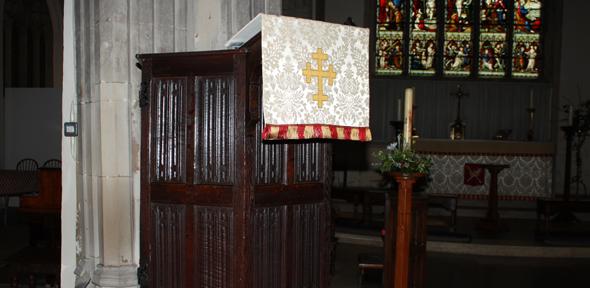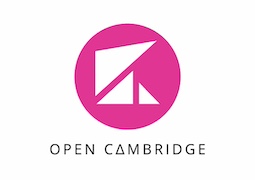
The English Reformation began right here in Cambridge and so many of its leaders were Cambridge-linked.
David Berkley (from the Society of Cambridge Tourist Guides) will give a historical talk on the Friday 11 September, 2pm – 3pm.
Held in St Edward King and Martyr Church, it will explore Cambridge’s unique connection to the English Reformation.
Throughout the 14th, 15th and 16th centuries, people were becoming increasingly concerned with aspects of the Catholic Church's doctrine and ritualistic worship. Between 1377-1415 the papacy was removed from Rome and reinstalled, with three popes sitting in tandem, in Avignon, Rome and Pisa, causing noticeable tensions within the Church.
At approximately the same time, John Wyclif [Wycliffe] - ultimately known as the 'Morning Star of the Reformation' - was teaching in Oxford as Professor of Theology and Master of Balliol College. Coinciding with the reign of Richard II and Anne of Bohemia, it was agreed that Bohemian students could attend Oxford University. Many of these, and in particular Jerome of Prague, sat listening at Wyclif's feet.
When he was ejected from Oxford in 1380 on account of his ‘heretical’ teaching, Jerome returned to Prague where he conveyed what he had learned from Wyclif to Jan Huss, Rector of Prague University. Wyclif’s ideas were transmitted across the continent, where English translations of the Bible were aiming to replace the Latin version uniformly used across Europe. Eventually Wyclif’s ideas reached Martin Luther in Saxony.
Luther, Professor of Biblical Exegesis at Wittenberg University in Saxony, was horrified at the sale of 'indulgences' and pinned up his '95 Theses' in protest in the castle at Wittenberg in 1517 (the official start of the Reformation). In 1520, copies of his early writings were smuggled into London and Cambridge. It wasn't long however before news of their arrival reached the ears of Cardinal Wolsey who ordered their destruction and had them burned outside the door of Great St Mary's.
However some were saved in time and given to a group of scholars - University and monastic - who met in a back room of a tavern named The White Horse Inn (off King's Parade, Cambridge). There they examined them and compared them with the recent New Testament translation produced by Erasmus (Professor of Theology at Cambridge). The scholars fell foul of sneering townsfolk who despised them for contemplating the teachings of foreigners. In due course the group came to be known pejoratively as 'Little Germany'.
The group included Barnes, Bilney, Bradford, Coverdale, Frith, Latimer, Matthew Parker (later Archbishop of Canterbury), Ridley, Rogers, Tyndale and some dozen or more others. Cranmer didn't feature much at this stage, being opposed initially to Luther's ideas and having come to Henry VIII's attention early on which necessitated caution on his part.
How and where could the group preach the new theology without persecution? Fortuitously, two Cambridge colleges - Trinity Hall and Clare College had lost the use of their chapels, and had then been given permission by Henry VI, founder of King's College, to use the church of St Edward's King and Martyr in the centre of Cambridge.
This meant that St Edward's was thereafter classified as a 'royal peculiar' (Latin 'peculiaris' = private). The Crown was now the church's patron and the Bishop of Ely had no jurisdiction and thus had no right to interfere with proceedings. As Thomas Bilney was a member of Trinity Hall and his friend, Hugh Latimer, a member of Clare, these two members of the Little Germany group had automatic right of access to St Edwards.
Others from that group gained entry in due course including Nicholas Ridley and Robert Barnes. It was Barnes who is deemed to have given the first Reformation sermon on Christmas Eve 1526.

